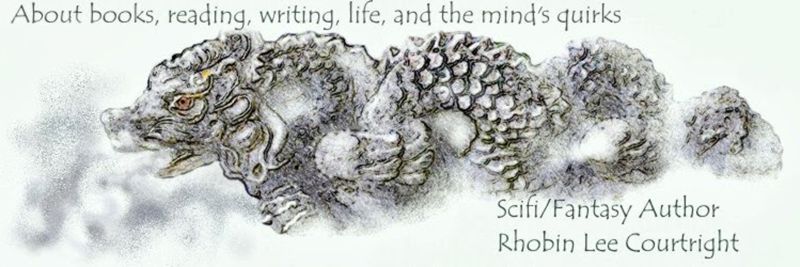 While make-believe stories
are meant to entertain, I think they have more important purposes. I believe fiction
helps readers grapple with their own dilemmas and grow as individuals even when
they are not aware of it. I believe the tension of 'what if' helps give readers
knowledge of themselves and others. I think overall, fiction helps readers
relieve the stresses of their daily lives and understand them better. Even fairy tails, folktales, and mythology have strong doses of tension because it keeps the reader reading and wondering about what happens next.
While make-believe stories
are meant to entertain, I think they have more important purposes. I believe fiction
helps readers grapple with their own dilemmas and grow as individuals even when
they are not aware of it. I believe the tension of 'what if' helps give readers
knowledge of themselves and others. I think overall, fiction helps readers
relieve the stresses of their daily lives and understand them better. Even fairy tails, folktales, and mythology have strong doses of tension because it keeps the reader reading and wondering about what happens next.
Vladimir Propp and Dr. Carl Jung have already described how the psychological aspects of fiction hold true in folktales, and I think the process goes on in all fiction writing.
When I read it is the tension within a story that keeps me reading, although I do not like a top-level constant dose of violence and endangerment. Sometimes it feels like I have, and have had, enough of that, thank you. (Not cliff hangers, just life's daily dose.)
Tension can also be of the contemplative type, of making an important choice and then having to live with the results. And it is not just about a character's goal and how they accomplish or fail to achieve their heart's desire or the violence or danger they fall into. Tension can develop from a character's weaknesses and how they test themselves, or two or more characters head-butting one another until they come to an agreement or part ways. Mostly it’s about emotion, plans that go amuck, and a character overcoming their failures and falls from grace. The joy is that there are millions of stories with more coming every day, and all with their own interesting tension.
From my own reading experiences, I know that the more visceral the description of a character's emotions and their physical reactions, or their relationship interactions or integration with their environmental as shown in a story, the more my mind and body react to the reading. These tensions also help me identify with the character.
I think readers nearly always identify with these and feel what the character feels. This does not necessarily mean trauma or extreme violence, although as previously discussed in Danger and Sometimes Violence in Writing, these can come into developing a story's tension. I think most readers identify the characters when these reactions are well described and this draws them into the story.
Please visit the following authors and see their opinions on tension in stories.
Beverley Bateman
Anne Stenhouse
Skye Taylor
A.J. Maguire
Dr. Bob Rich
Helena Fairfax
Diane Bator
Judith Copek

Excellent observation that often the tension that keeps us glued to the book are emotional ones rather than violent ones. I'm not a fan of erotica for the simple reason that I feel sexual activity is like the spices in cooking, a little goes a long way and the rest of the recipe is equally important. And the same goes for physical conflict/violence - you can have too much and lose the reader because they are too busy gasping over mayhem and not becoming engaged with the characters. Great post.
ReplyDeleteRhobin, I strongly agree with the start of your post: that a role of tension is as a tool to enable the reader to grow. I'd never considered this before, but you are right. I guess it's "How would I handle this in my own life?"
ReplyDeleteA very well written and informative post. I enjoyed your thoughts on how tension helps readers grapple with their own dilemmas and grow as individuals even when they are not aware of it. I think a lot of writing is hoping to help a reader grow and work through their own situations. It's a good point I hadn't really considered before.
ReplyDeleteHi Rhobin, contemplating 'what to do next' van be very stressful in real life and therefore a great source of tension in fiction. I've just abandoned a book that has made its author mega bucks, because of the violence. It's not my choice in entertainment. anne
ReplyDeleteGreat post! I don't mind a small dose of violence or danger, but when it seems like a constant thing in a book, it becomes overdone. Same with sex. There are certain books I've literally tossed across the room because the story was forgotten in favor of the gratuitousness.
ReplyDeleteYou have some excellent ideas about tension and conflict. And the statement that it can become too much--the reader needs a respite every now and then--is excellent. We don't want to exhaust our readers.
ReplyDeleteVisceral descriptions always good.